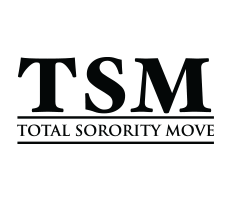I started a new job this week. I got a title change and a pay increase — the whole shebang. I had hated my previous job since the day I interviewed for it, but it was my only offer right out of school and beggars can’t be choosers. Here’s how I did it:
1. Tell your friends and family that you are looking for a job. Your network is your network, and every now and then, you simply have to shake the tree and see what fruit tumbles down. How was I to know that my grandpa’s neighbor is childhood friends with an alum of my school? One quick phone call to him, and I had an interview with the company that guy retired from. Yes, it gets really old after a while, but you have to use every resource at your disposal to hit paydirt.
2. Have your HR friends look over your résumé. We all know somebody who works in HR somewhere, and that person knows what he or she wants to see in a résumé a hell of a lot more than you do. It might be a minor inconvenience to this person, but the fifteen minutes he or she takes to look it over will pay off down the road.
3. Spring for LinkedIn Premium. It’s only $30, and it really does provide a boost to your job search. You get three InMails, which are basically free emails to anyone on LinkedIn. A well-worded message to an HR executive is a great way to put your name out there. No guarantees, but the exec will probably at least look at your profile if he or she doesn’t respond.
4. If you can’t pay for LinkedIn Premium, use Indeed. Say what you will about job websites, but Indeed is money. It takes around forty-five minutes to type in your résumé and get everything set up the way you want it, but after that, you can apply for some of their jobs with just a click of your mouse. Recruiters are always perusing these sites and if they like what you have to offer, they’ll make you feel like the belle of the ball. You won’t spend hours on job applications and creating worthless logins. It puts your résumé right in front of decision makers.
5. Lose a few pounds. Come interview time, rosy cheeks don’t mix with tight suits, and you really can’t afford a tailor right now. I laid off beer for a month, cut down on going out to eat, and finally tried “jogging.” Apparently, you just run for extended periods of time. If you’re overweight, HR sees health insurance costs, not a future employee. A healthy person looks like a happy, motivated person. Aesthetics go a long way.
6. Research, research, research. The first step in interviewing well begins with the preparation. “Crushing” an interview simply means don’t say anything stupid and research the company beforehand. You get out of interview prep what you put into it. The company has already liked your résumé and made time to get to know you, so now it’s your job to get to know them. Know what they do, who works for them, how many employees they have, and how many people you might manage or would be managing you. Pro tip: Hit LinkedIn and find out where your interviewer went to school. This will help with the small talk at the beginning of the interview and eliminate any temptation to talk about the weather or your Oscar picks.
Also, have questions for after the interview. They always ask you if you have any questions, and it’s a loaded question. They want to gauge your interest in the company. The interview isn’t over when they stop asking you questions. You’ve reached halftime. Have a mental list of ten to twelve questions. Ask them about the office culture, such as what it’s like to work there. Ask them about their PTO policy (do NOT say the word “vacation”). Ask them if they have any reservations about hiring you. Ask them what their biggest problem is in the office that you can help solve. How do they define success? Do they offer assistance for continuing education? Ask them about the last person who held this position. What was that person like? What does he or she do now? It’s a two-way street.
7. Don’t take an offer just because it’s an offer. Professional courtesy allows for at least a week to decide, sometimes two if you are currently employed. Don’t be afraid to stand up for yourself and tell your future manager to back off a little — you don’t work for him or her yet. It’s entirely your decision after the new job says yes. Take some time on it. Politely thank them for the offer and then mull it over for no more than a week. Are the salary and benefits negotiable? What kind of advancement opportunities are there? Will they relocate you at some point?
That’s that. This process will probably take about six weeks from start to finish, and it will probably involve about an hour a day of job searching, résumé tweaking, or cover letter bullshitting. I perused a little bit on the weekends, but I didn’t really feel lucid enough to job search with a buzz. It wasn’t quite the meteoric rise I had hoped for, but my working spirit has renewed itself and I’m actually kind of excited to go to work right now. It should last through the week..
Image via Shutterstock







Oh, get a job? Just get a job? Why don’t I strap on my job helmet and squeeze down into a job cannon and fire off into job land, where jobs grow on little jobbies?!
or you could settle for Charlie work
I will say, for me, finding a job was actually a full-time job within itself. I also found that, when I got a job, I received countless job offers / interviews after the fact. Weird how things work out that way.
Kinda like breaking a dry streak. Waterfall effect, man.
Well shit, I didn’t know thats how it worked.